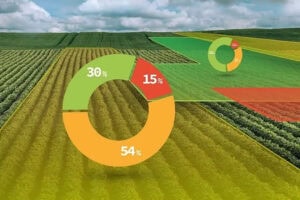Cromai Scan to reduce herbicide use by 65% in weed control

The Brazilian agtech company Cromai offers a weed control system that uses drones and artifical intelligence (AI). The so-called Cromai Scan is to enable a reduction in herbicide usage of up to 65%.
The Cromai Scan software processes aerial images taken by UAVs (unmanned aerial vehicles) and is able to accurately detect weeds that are harmful to crops. Its computational vision identifies patterns in images collected in the field to offer diagnostics that provide a better grounding in agronomic decision-making.
Save up to 14 USD per hectare

The tool would make the identification of pests and weeds and the application of chemicals much more efficient, saving a grower up to 14 USD per hectare on inputs. The system works with six information layers to identify several weed species, such as vines, castor bean, grasses and undefined weeds. In just a few minutes, the technology is able to identify even small outbreaks during initial stages.
Developed in São Paulo, the tool is now being used by 15 Brazilian growers, including some of largest sugarcane mills in the country. “We developed the Cromai Scan to make daily life easier in the field. The tool gives growers a complete overview of their fields and the information they need to eliminate weeds in a precise and efficient way”, said Guilherme Castro, CEO of Cromai.
Partnership with Stoller Group

Cromai recently announced a partnership with the Stoller Group. The Stoller Group, active worldwide in nutrition, plant physiology and biological nitrogen fixation, has acquired a stake in Cromai. The development of artificial intelligence applied to the field by the two companies has taken place for three harvests. In 2022, it will be available to coffee producers. In 2023, launches are planned for sugar cane and large crops, especially for soybeans, corn, and cotton. The project started in Brazil, but it will be expanded on a global scale by the Stoller Group, which is currently present in 56 countries.



